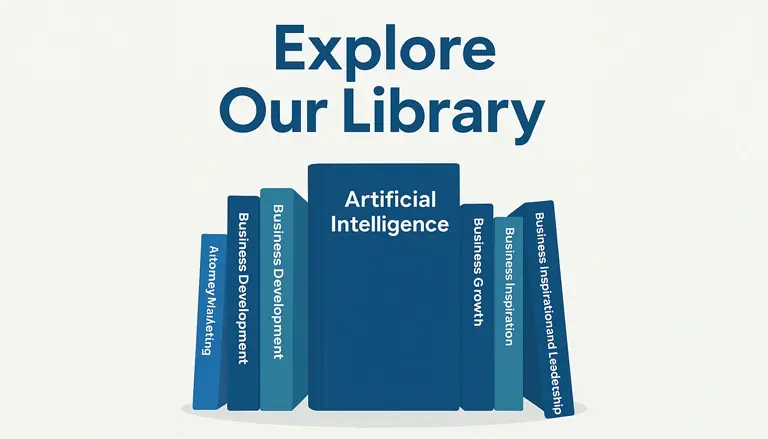

How to Choose the Best Third-Party Lead Provider for Your Business
Posted April 6, 2025 by Kevin Chern
“It’s not about having the right opportunities. It’s about handling the opportunities right.”
— Mark Hunter
Case Study: The $60K Lead That Turned Into $1.2 Million… and the 3,000 That Didn’t
Let’s rewind to a midsize legal firm in the Midwest that reached out to us in Q1 of last year. They’d just invested close to $100,000 across three different third-party lead providers. One of those leads eventually landed them a multi-million-dollar case that paid out beautifully. But the rest? Disconnected phone numbers, recycled submissions, people who had never heard of the firm and a very expensive lesson in wishful thinking.
When they came to us, the question wasn’t: “Should we buy leads?” It was: “How do we stop buying junk?”
The truth is, third-party leads can either be the fuel that scales your revenue or the hole in your marketing boat. It all depends on the source and your scrutiny.
What Business Owners Get Wrong About Lead Providers
Many businesses treat lead providers like vending machines: insert budget, expect results. But it’s more like hiring a recruiter. They’re not just giving you volume they’re influencing the future shape of your revenue.
Stat: 57% of businesses report dissatisfaction with their lead provider’s lead quality within the first 6 months of engagement. (Source: HubSpot State of Marketing Report, 2024)
Buying third-party leads is high-stakes. Done right, it can be the bridge between sporadic growth and predictable revenue. Done wrong, it can tank your ROI, team morale, and marketing confidence all at once.
So how do you make sure you’re doing it right?
Let’s break it down.
What Makes a Great Third-Party Lead Provider?
Choosing a lead partner isn’t just about who can deliver the most names. It’s about who can deliver prospects that actually want what you’re offering and are willing to pay for it.
Here are the pillars that separate the pros from the pretenders:
1. Transparency Around Lead Source
Ask where the leads are coming from specifically.
Are they:
- Direct inquiries from landing pages?
- Aggregated leads resold from affiliates?
- Cold-scraped lists passed off as warm?
- Generated through co-branded or native ads?
Fact: 68% of B2B buyers say they are more likely to engage with vendors that explain how their information was sourced. (Source: Demand Gen Report, 2023)
You wouldn’t trust a stranger to deliver your food without knowing which kitchen it came from. Why trust someone with your pipeline?
Pro Tip: Ask for screenshots or mockups of the ads, landing pages, or forms being used to generate the leads. If they won’t share them, walk.
2. Exclusivity vs. Shared Leads
If five companies are calling the same lead within 10 minutes, it’s a race to the bottom.
Exclusivity matters.
While shared leads may be cheaper, they can erode your brand faster than they convert. You’re paying for leads that are also being pursued by competitors, possibly even with more compelling offers.
Stat: Exclusive leads convert at 3 to 5 times the rate of shared leads. (Source: Invoca Lead Conversion Index, 2024)
Choose a provider who offers:
- Lead exclusivity (or at least limited competition)
- Territory or vertical protection
- Transparent volume commitments
3. Lead Quality and Verification
Not all leads are created equal. A true lead provider should have:
- Phone/email verification tools
- CAPTCHA to reduce bots
- IP filtering to avoid fraud
- Built-in qualification filters (e.g., budget, timeline, geography)
Fact: 27% of third-party leads are either duplicate, fraudulent, or stale. (Source: Ascend2 Research, 2023)
Red Flag: If you’re consistently getting leads with @yopmail.com or burner phone numbers, you’re being sold a list not a pipeline.
4. Industry Specialization
A generalist provider may promise you the moon, but unless they’ve worked in your vertical (legal, home services, SaaS, healthcare, etc.), they’re guessing at what “qualified” really means.
Specialized providers:
- Know your customer’s intent triggers
- Use relevant qualification questions
- Provide more aligned conversion support
Stat: Businesses working with industry-specialized lead providers report 36% higher conversion rates. (Source: MarketingProfs, 2024)
5. Clear Pricing and Terms
You’d be shocked how many lead vendors offer convoluted pricing:
- Per lead + monthly platform fees + markup on “qualified” leads
- No refunds on bunk data
- Limited data rights or usage restrictions
Always ask:
- What’s the cost per lead (CPL)?
- Are refunds or replacements offered for bad data?
- Is there a setup fee, retainer, or cancellation window?
Pro Tip: Ask for a sample invoice and lead report before signing. If it takes a decoder ring to understand their pricing, keep looking.
6. CRM Integration and Automation Support
If leads aren’t flowing smoothly into your CRM, your sales team is flying blind.
Great providers:
- Integrate with major CRMs like HubSpot, Salesforce, Pipedrive
- Support real-time lead routing
- Offer lead tags, source tracking, and intent scoring
Fact: Companies with automated lead ingestion convert 23% more leads on average. (Source: Salesforce, 2024)
If you’re spending more time formatting spreadsheets than closing deals, the provider’s systems aren’t ready for yours.
7. Performance Guarantees and Benchmarks
Any provider worth your time should be able to tell you:
- Average conversion rates by lead type
- Expected close timelines
- Refund/replacement rates
They should also be willing to test their leads on a pilot basis ideally 30 to 60 days before locking you into a longer contract.
Stat: 79% of top-performing B2B companies begin with a pilot period before scaling third-party lead buys. (Source: Gartner Research, 2024)
The Lead Vetting Checklist (Use This Before You Sign)
| Criteria | What to Ask or Look For |
| Source Transparency | Where exactly do leads come from? |
| Exclusivity | Are leads shared or exclusive? |
| Data Quality Controls | How is lead info verified? |
| Industry Relevance | Do they specialize in your niche? |
| Pricing Structure | What’s the CPL? Are there hidden fees? |
| Contract Terms | Can you cancel or scale based on performance? |
| CRM Compatibility | Do they support real-time CRM integration? |
| Refund/Replacement Policy | What happens when a lead is bad or unreachable? |
| Compliance Alignment | Are they GDPR/CCPA compliant? |
| References | Can they connect you with happy clients in your space? |
What to Avoid (Even If It Sounds Tempting)
“Leads Guaranteed to Convert!”
Nobody can guarantee conversions unless they’re selling appointments or demos. Be wary of overpromises.
“$3 Per Lead!”
That’s a list rental, not lead gen. At that price, you’re buying data scraps.
“We Only Do Phone Transfers”
Sounds nice until you realize the consumer had no idea who you were or why you’re calling.
“Just Pay for Performance”
These offers often bake in hidden markups and churn-prone leads. You’ll pay one way or another.
Choosing the wrong lead provider isn’t just wasted spend. It erodes your team’s trust, burdens your CRM with junk data, and pollutes your brand reputation when outreach becomes spammy or tone-deaf.
Fact: 32% of businesses reported negative customer reviews stemming from aggressive outreach to poorly qualified leads. (Source: BrightLocal, 2024)
What’s Next: Building a Lead Ecosystem, Not a Dependency
The smartest businesses don’t rely on third-party leads forever. They use them to:
- Fuel fast growth
- Test new markets
- Smooth demand gaps
But they also invest in first-party lead capture, SEO, email nurturing, and brand equity. Think of third-party leads as training wheels not your forever strategy.
When the leads dry up or prices spike you want a machine that keeps spinning without them.
Final Thoughts
Third-party lead providers can be incredible accelerators or expensive distractions. The key isn’t to say yes or no. It’s to vet them like you would a new hire: carefully, thoroughly, and with clarity about your expectations.
Your pipeline isn’t a numbers game. It’s a trust game. And that trust starts with choosing the right partners.
So here’s the question:
Are you buying leads or building relationships that convert?
Tags:




